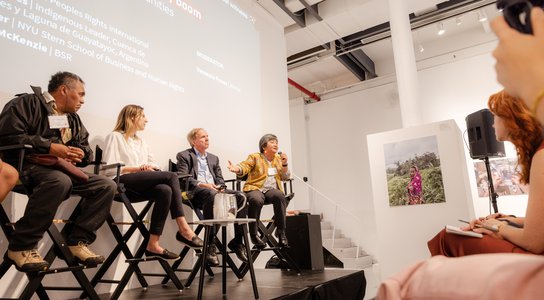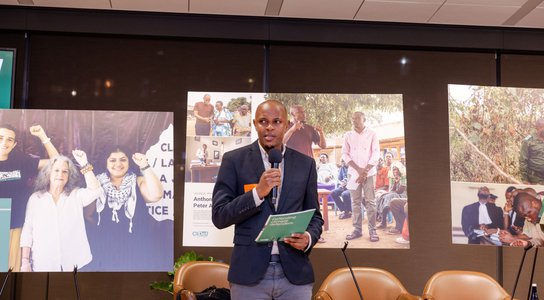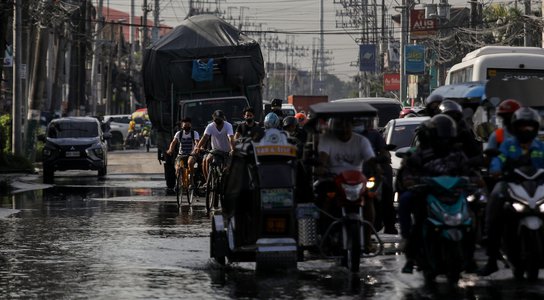New York Climate Week (NYCW), hosted to coincide with the United Nations General Assembly, gathered civil society, businesses, and governments together for hundreds of panels, conferences, and fireside chats to underscore the evident: we’re running out of time.
This year, against the backdrop of a world with many interconnected crises, Global Witness came together in New York to build community and stand with the people most affected by the climate emergency.
The planet is burning; indeed, we’ve seen the hottest months on record, all while fossil fuel companies are not only failing to meet their climate pledges but are continuing to extract fossil fuels at an alarming rate.
But, on the positive side, we saw a rallying cry across NYCW to end fossil fuels and accelerate the transition to a green economy - a transition that leaves no one behind.
Here are our 5 takeaways from New York Climate Week:
1. The need to end the era of fossil fuels
New York Climate Week kicked off with a march to end fossil fuels – it’s estimated that 70,000+ people joined the rally, including US Congresswoman Alexandria Ocasio-Cortez and Ugandan climate justice activist, Vanessa Nakate.
Climate action requires a democratic restructuring of the economy, said Ocasio-Cortez. “What we’re not going to do is go from oil barons to solar barons.”
Organisers estimate this was the largest climate march in the US in the last five years.
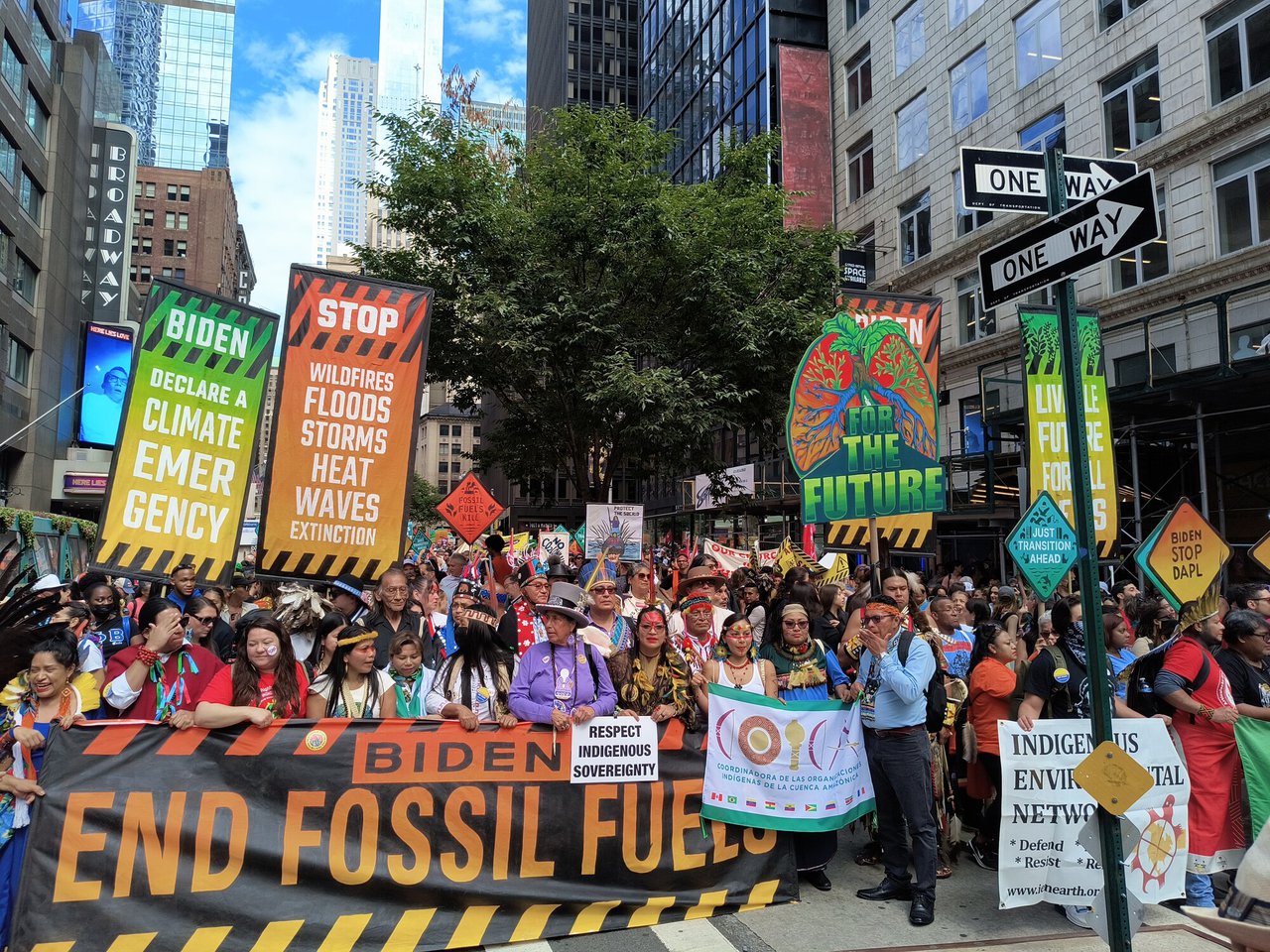
March at New York City Climate Week 2023
2. There is no climate action without climate justice
Land and environmental defenders do critical (and frequently overlooked) work to fight the climate crisis, often in the face of harassment, criminalization, and lethal violence. They’re stopping new oil and gas projects, they’re safeguarding our forests and they’re defending their livelihoods.
At least 1,910 land and environmental defenders globally have lost their lives since Global Witness started documenting killings in 2012 - an average of one environmental defender killed every two days. Of these, at least 1,390 defenders have been killed since the Paris Agreement was adopted in 2015.
“Land and environmental defenders are not only individuals, they’re communities who give their lives for all of us” - Joan Carling, Indigenous activist and co-founder and Executive Director of Indigenous Peoples Rights International
On 20th September, the same day that the UN hosted its Climate Ambition Summit, just a few blocks away from the UN headquarters, we heard from Joan Carling, Indigenous Filipino human rights activist; Vanessa Nakate, Ugandan climate justice activist and author; Juan Manuel Santos, former Colombian President and member of The Elders; Ambassador Norberto Moretti, Deputy Permanent Representative of Brazil’s Mission to the UN; Michel Forst, UN Special Rapporteur on Environmental Defenders, and Martín Abregú, Vice President, Ford Foundation, on the importance of increasing recognition and protection of defenders at the forefront of the climate crisis.
The event was co-hosted by Global Witness and ALLIED in collaboration with the Ford Foundation and the office of the UN Special Rapporteur on environmental defenders, Michel Forst.
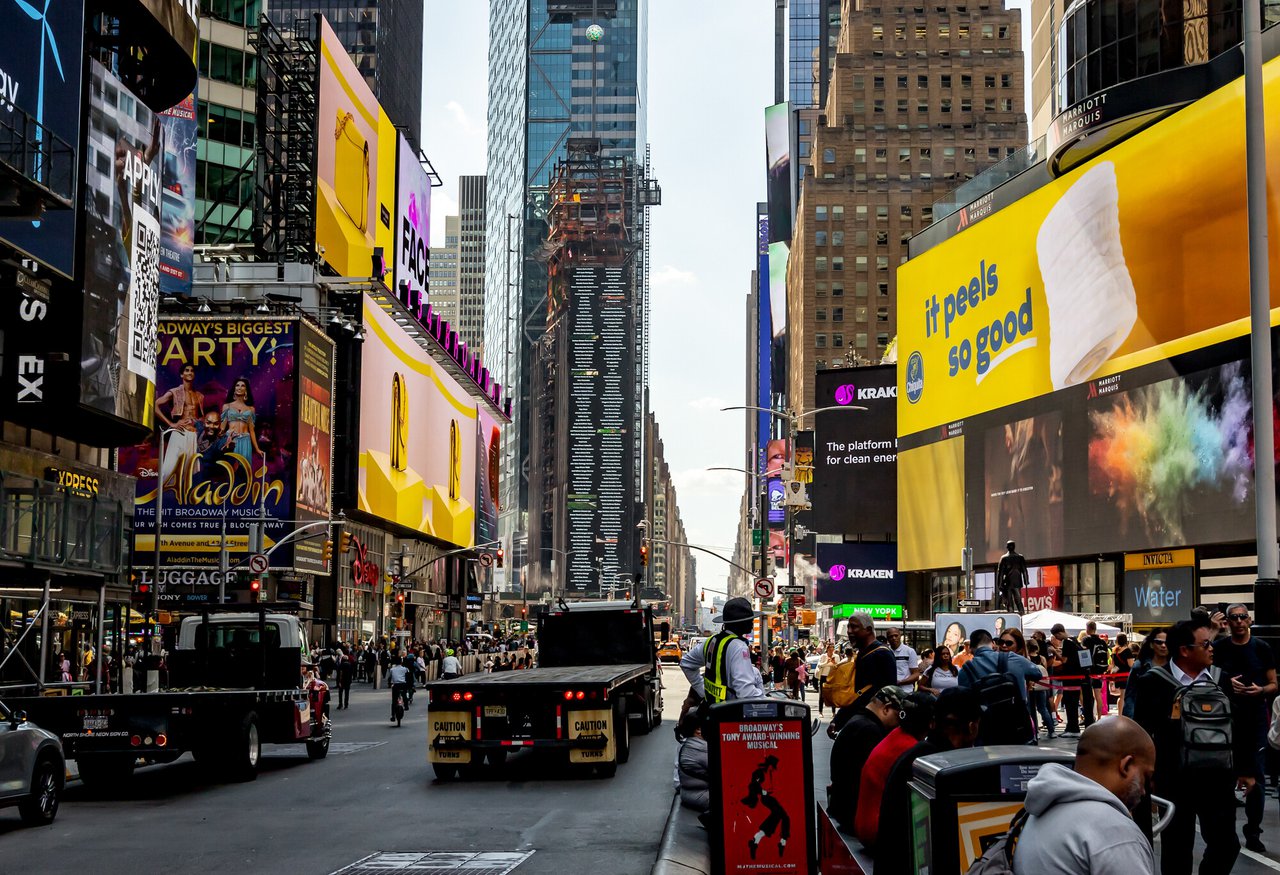
Nearly 2000 land and environmental defenders have been killed since 2012. On September 20th, we screened their names in New York's Times Square to pay tribute and honour their work. As global leaders gather for the UN Climate Ambition Summit, we call on governments to #DefendTheDefenders
"We need governments to take a stand for these activists" - Vanessa Nakate, climate justice activist and UNICEF ambassador
3. The energy transition is in full swing – but not quite right (yet)
Discussions around the energy transition were numerous. So-called ‘strategic minerals’ are in the spotlight, as a future that is powered by renewable energy will require an increase in mineral extraction. The extent of the need for new mineral extraction is debated, but the scramble is already underway.
But what’s not getting enough attention are the social and environmental impacts of new mining, who pays for what, who benefits, and whether exploitative models are being replicated. During the discussions on energy transition, we were alerted that between 60% - 80% of transition mineral are located in indigenous peoples land. Global Witness reported that in 2022 more than a third (36%) of the defenders murdered were Indigenous peoples.
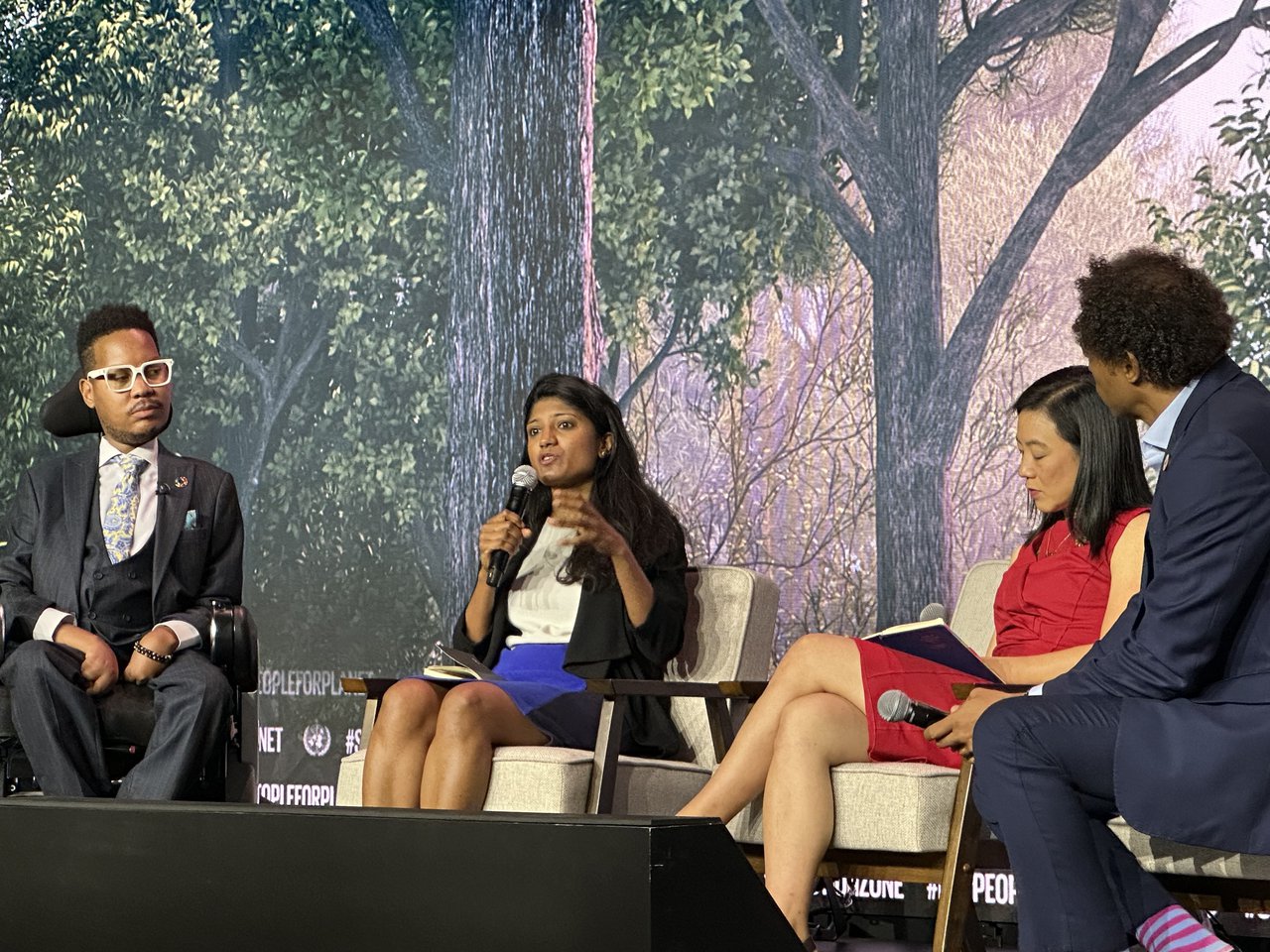
‘We have an opportunity to do things right and not repeat the mistakes of the past and replicate economic models that perpetuate exploitation and people’s rights abuses’ - Shruti Suresh, at the SDG Zone, UN Headquarters
On September 21st, we heard from Joelle Ravelomanantsoa, Transparency International Madagascar, Emmanuel Umpula Nkumba, AFREWATCH [remote], and Eric Ngang, our Global Policy Advisor [remote] in a deep-dive discussion on what the scramble for these transition minerals looks like for communities in Madagascar and Democratic Republic of Congo.
Communities suffer the negative impacts caused by mining activities such as loss of access to land, loss of their subsistence income, water pollution, deterioration of their health, without benefiting from any fair compensation from mining companies and the government. - Joelle Ravelomanantsoa, Transparency International Madagascar
4. The role of Big Tech in climate disinformation can’t be overlooked
On 19th September we were joined in conversation by Dr Ella Gilbert (climate scientist at the British Antarctic Survey and science communicator); Mitzi Jonelle Tan (climate justice activist and convenor of Youth Advocates for Climate Action Philippines); and Nicole Sugerman (campaign manager at Kairos Fellowship).
The conversation covered both the promise and perils of Big Tech in tackling the climate emergency. Speakers described the ways they use tech for organising communities and communicating climate science to a wider public, and the harms from online harassment and the spread of climate disinformation.
They also examined how to demand more accountability from Big Tech, describing the importance of collective action, user pressure, and appropriate regulation.
Finally, the speakers discussed distinguishing the responsibility of individual users and the companies themselves, as well as reinforcing the historical and moral responsibility of the global north to fix the climate emergency and show leadership in supporting solutions.

"“I think being able to collectively organise to make sure that we hold Big Tech accountable, to make it a place that is fair, that is not promoting these kinds of extremely polarising environments and not promoting misinformation is something that we can all do a bit to work towards.”" – Dr Ella Gilbert
5. The need to stop JBS
On Wednesday 20th September, along with other 15 groups, we released a briefing detailing the risks of JBS's proposed dual-listing to the New York Stock Exchange.
As the largest meat company in the world, JBS undoubtedly has an impact on the planet - and their name belongs to the list of largest carbon emitters in the planet.
We at Global Witness have been investigating JBS for years, and we know that the company’s current operational model can and has harmed communities and caused deforestation.
ICYMI: New York Times journalist grills the JBS global chief, Gilberto Tomazoni, and asked him about JBS’s emissions, the public listing, the criticism from activists and more. Tomazoni defended the company’s record.
“Too often we see US-based banks and corporations implicated in rainforest destruction” - Ashley Thomson, Global Witness Senior Policy Advisor
What’s next?
This year’s UN Climate Summit (COP28) will be hosted by repressive regime and one of the largest oil producers in the world: the United Arab Emirates (UAE).
Sultan al-Jaber, the UAE’s COP President, is the CEO of Adnoc, one of the largest producers of the oil and gas that is driving the crisis and preventing the mass transition to cheaper, cleaner energy sources. We’ve shown that Adnoc is set to spend more than $1 billion every month this decade on fossil fuels, despite its claims to be a leading green energy provider.
We need the final conference text to include a phase out plan for all fossil fuels well ahead of 2050, ban any new explorations, and meaningful steps to deliver a just transition. No ifs, no buts.
There will be no end to the climate crisis until decision-makers put people above profits.
Author
-
Ana Zarraga
Director of External Engagement
